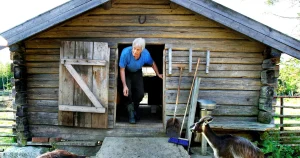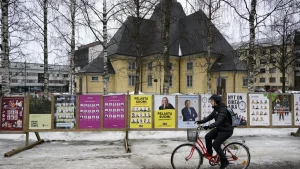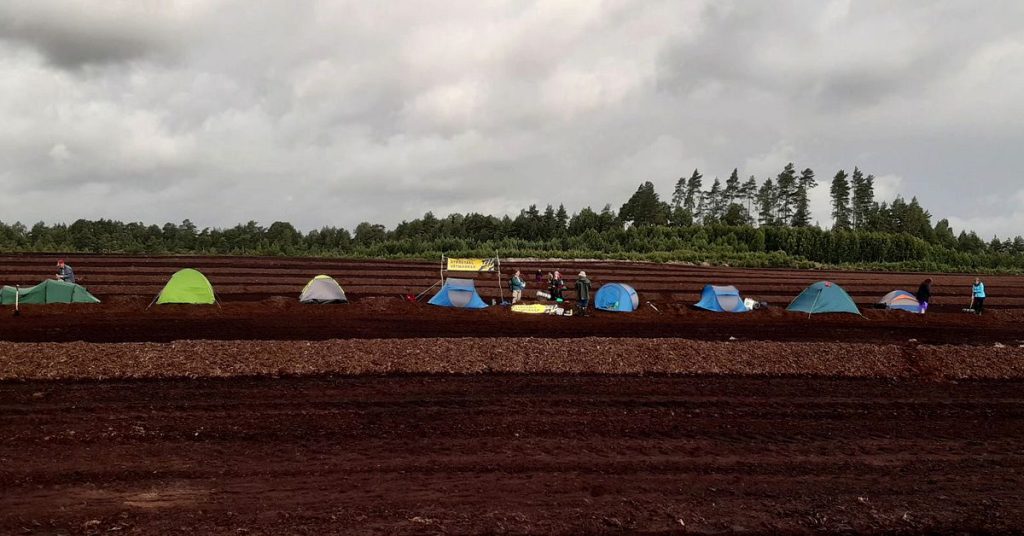The Jönköping District Court’s acquittal of the climate activists who occupied the Bredaryd peat bog represents a significant legal and societal development with far-reaching implications. The activists, affiliated with the ”Återställ Våtmarker” (Restore Wetlands) movement, argued that their actions, which involved blocking access to the peat extraction site, were justified by the urgent need to address the climate crisis. They contended that the continued exploitation of the peat bog for horticultural purposes contributed significantly to greenhouse gas emissions and environmental degradation, outweighing the property owner’s right to exploit their land. The court’s decision to acquit them signals a potential shift in the legal landscape, acknowledging the gravity of the climate crisis and potentially opening the door for similar acts of civil disobedience in the future.
The legal arguments put forth by the defense centered around the concept of necessity, a legal defense that allows individuals to break the law if doing so prevents a greater harm. The activists argued that their actions were necessary to prevent the irreversible damage caused by peat extraction, including the release of stored carbon into the atmosphere and the destruction of a vital ecosystem. The prosecution, on the other hand, maintained that the activists’ actions constituted trespassing and obstruction of business, emphasizing the importance of upholding property rights and the rule of law. The court’s decision to side with the activists suggests a growing recognition within the judiciary of the climate crisis as a legitimate and imminent threat, potentially setting a precedent for future cases involving climate activism.
The broader context of the acquittal encompasses the growing global movement of climate activism, particularly the increasing use of civil disobedience tactics to raise awareness and pressure governments and corporations to take action. The ”Restore Wetlands” movement, specifically, focuses on the critical role of peatlands in carbon sequestration and biodiversity conservation. Peat bogs, like the one in Bredaryd, store vast amounts of carbon, and their destruction releases this carbon back into the atmosphere, contributing to global warming. The activists’ actions highlighted the ecological importance of peatlands and the urgent need for their protection, placing the issue squarely within the public discourse.
The Jönköping court’s decision has ignited a debate about the balance between individual rights, property rights, and the collective responsibility to address the climate crisis. Opponents of the acquittal argue that it undermines the rule of law and could encourage further acts of lawlessness, potentially setting a dangerous precedent. They emphasize the importance of respecting property rights and the established legal processes for addressing environmental concerns. Supporters, however, view the acquittal as a victory for climate activism, highlighting the moral imperative to take action in the face of a looming environmental catastrophe. They argue that the court’s decision legitimizes the use of civil disobedience as a means of raising awareness and prompting necessary change.
The ramifications of this acquittal extend beyond the immediate legal implications. It has the potential to influence future legal decisions regarding climate activism and could encourage similar acts of civil disobedience. The decision could embolden climate activists to escalate their tactics, potentially leading to more confrontational protests and legal challenges. Furthermore, the acquittal could prompt legislative action to address the legal ambiguities surrounding climate activism and the defense of necessity. The case raises fundamental questions about the role of the judiciary in addressing the climate crisis and the limits of civil disobedience in a democratic society.
This case also underscores the growing tension between economic interests and environmental protection. The peat industry, while economically significant in some regions, faces increasing scrutiny due to its environmental impact. The demand for peat in horticulture poses a challenge to the preservation of peatlands, creating a conflict between economic development and ecological sustainability. The acquittal of the Bredaryd activists could accelerate the transition away from peat-based products and towards more sustainable alternatives, prompting further research and investment in eco-friendly horticultural practices. The case highlights the need for a broader societal dialogue about the trade-offs between economic growth and environmental preservation, and the role of law in mediating these competing interests.














